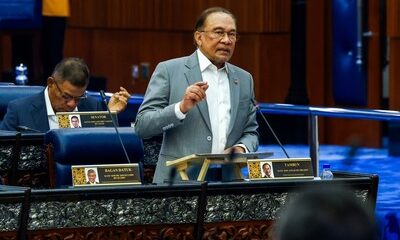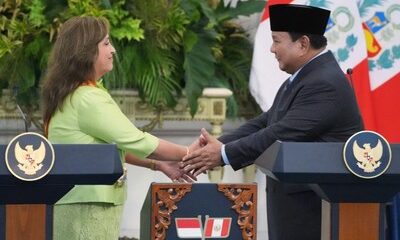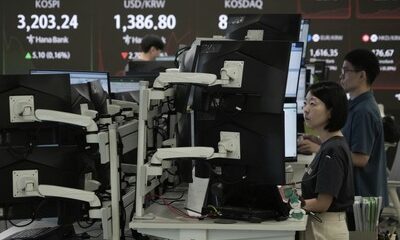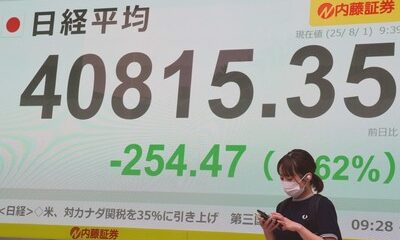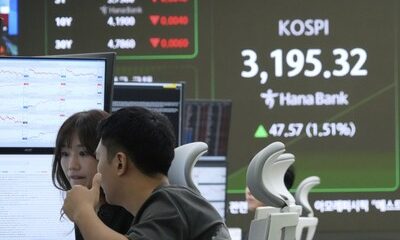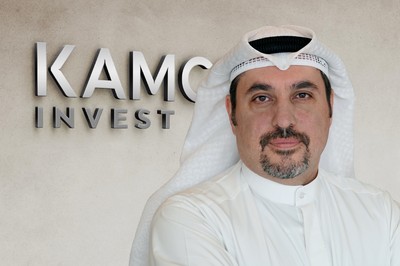Kuwait City, 12August2025: Kamco Invest, a regional non-banking financial powerhouse with one of the largest AUMs in the region, announced its financial results for the six-month periodended30June2025. The Company reported a net profit of KWD7.1mn (EPS:20.72fils) compared toKWD2.5mn during the same period in 2024 (EPS:7.26fils).
Total revenue stood atKWD19.0mn, an increase of 48.2% compared to the same period of 2024, whereas fee and commission income reached KWD7.5mn (6M 2024: KWD8.1mn).The rise in total revenue was primarily driven by the performance of the Company’s investment portfolio, supported by one-off proceeds from a legal case ruled in the Company’s favor.
Assets under management grew by 7.5% to reach USD17.1bn as of 30June 2025, due to new money raised in various products during the period, as well as the performance of portfolios and funds. Kamco Invest maintained its ranking amongst the ten largest asset managers in the MENA region, according to Forbes Middle East. The Company enjoys a strong track record and deep expertise in delivering diverse investment solutions to its clients.
Managed portfolios continued to outperform their respective benchmarks, while the Company’s equity funds maintained their positions amongst the top performing funds in Kuwait and Saudi Arabia, based on the fund disclosures published on Boursa Kuwait and Tadawul websites.
As forAlternative Investments, which includes real estate, private equity and structured products, the team continued to expand its range of offerings to provide clients with added value. During the period, Kamco Invest finalized the acquisition of a 60% majority stake in European Green Logistics Space (EGLS), a company specializing in the development, investment, and management of logistics assets in Europe. This acquisition reflects Kamco Invest’s commitment to growing its recurring fee income while unlocking value-adding opportunities for regional clients in the sustainable logistics sector.
Furthermore, the Company successfully exited its investment in Yargici, a leading Turkish fashion and accessories brand held by one of Kamco Invest’s private equity funds, through a sale to TIMS Group, a diversified Turkish business group with operations in content production, tourism, construction, and land development. The exit highlights Kamco Invest’s commitment to delivering long-term value to its clients while ensuring the continued growth and success of its portfolio companies.
The Investment Banking team continued to advise clients on several transactions across equity capital markets, debt capital markets, and M&A, with deals expected to close during the year. During the six-month period, the team advised OSN Group on the sale of a 30% stake of its subsidiary, OSN Streaming Ltd., to Warner Bros. Discovery for USD57mn. The team also acted as Joint Lead Manager on five bond and sukuk issuances totaling USD2.3bn for regional banks and institutions across Kuwait, Saudi Arabia, UAE, and Qatar.
First Securities Brokerage Company, Kamco Invest’s brokerage arm, continued to strengthen its competitive position and attracted new clients through its online trading platforms.
Kamco Invest -Saudi and Kamco Invest – DIFC continued to strengthen their presence in their respective markets by improving their services and contributing more to the company’s core businesses, particularly in asset management. Kamco Invest – Saudi signed a strategic partnership with Flexam Invest to offer leasing opportunities to their clients. Furthermore, Kamco Invest – Saudi completed the fit-out of its new premises in the King Abdullah Financial District (KAFD), with the official move taking place in July 2025.
Kamco Invest was awarded the “Kuwait’s Best for Alternative Investments” at the Euromoney Private Banking Awards 2025, highlighting the Company’s rapid growth and sustained success in the alternatives space. In addition, Kamco Invest was named “Kuwait’s Best Investment Bank – DCM” at the Euromoney Awards for Excellence 2025, in recognition of the team’s outstanding performance in executing bond and sukuk transactions for local and regional clients.
Total assets increased by 4.4% during the period to reachKWD135.5mn, whereas shareholders’ equity rose by 8.7%toKWD67.7mn. The Company also enjoys a strong financial position and a “BBB” long-term credit rating and “A3” short-term rating with stable outlook by Capital Intelligence in their latest review in May2025.
Commenting on the results, Sheikh Talal Ali Abdullah Al Jaber Al Sabah, Chairman, said, “Our performance in the first half of 2025 highlights the resilience of our strategy and the strength of our diversified business model. We are well positioned to navigate market dynamics and grow our business while continuing to deliver value to our shareholders.”
Faisal Mansour Sarkhou, Chief Executive Officer, commented, “We delivered solid growth during the six-month period on various fronts including assets under management and achieved strong returns across our investment portfolios. Strategic developments, such as the acquisition of a majority stake in EGLS, demonstrate our focus on long-term value creation. We remain committed to enhancing our offerings, expanding our regional footprint, and delivering sustainable growth for our clients and stakeholders.”
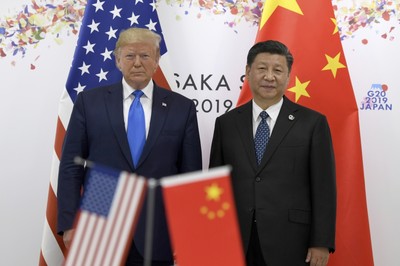
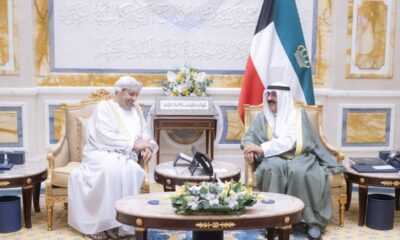
 Latest News22 hours ago
Latest News22 hours ago
 Business5 hours ago
Business5 hours ago
 Latest News19 hours ago
Latest News19 hours ago
 Politics7 hours ago
Politics7 hours ago
 Politics15 hours ago
Politics15 hours ago
 Politics14 hours ago
Politics14 hours ago
 Latest News12 hours ago
Latest News12 hours ago
 Latest News8 hours ago
Latest News8 hours ago



